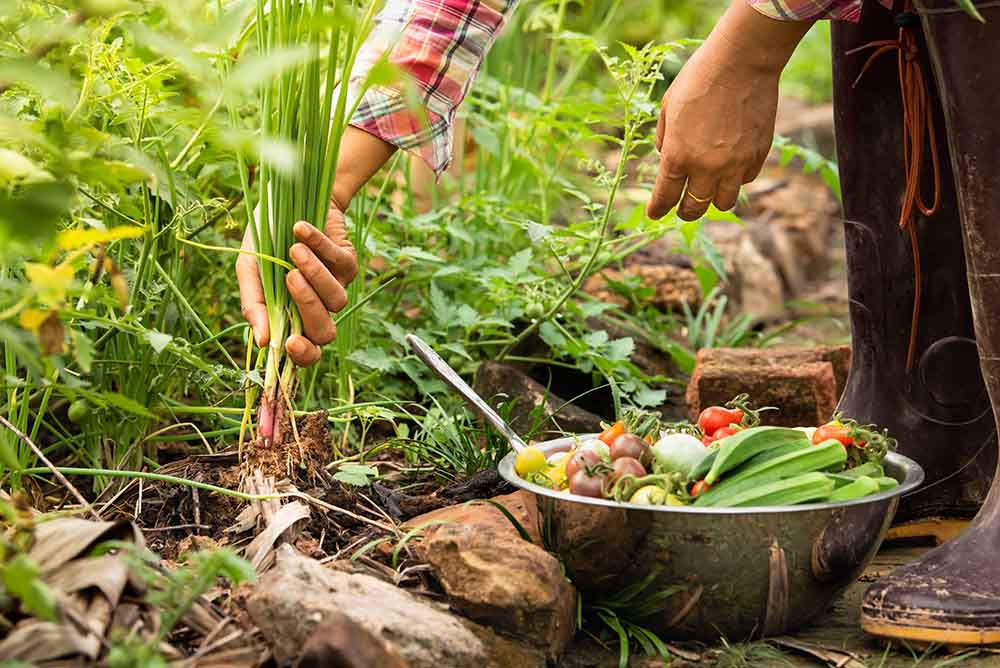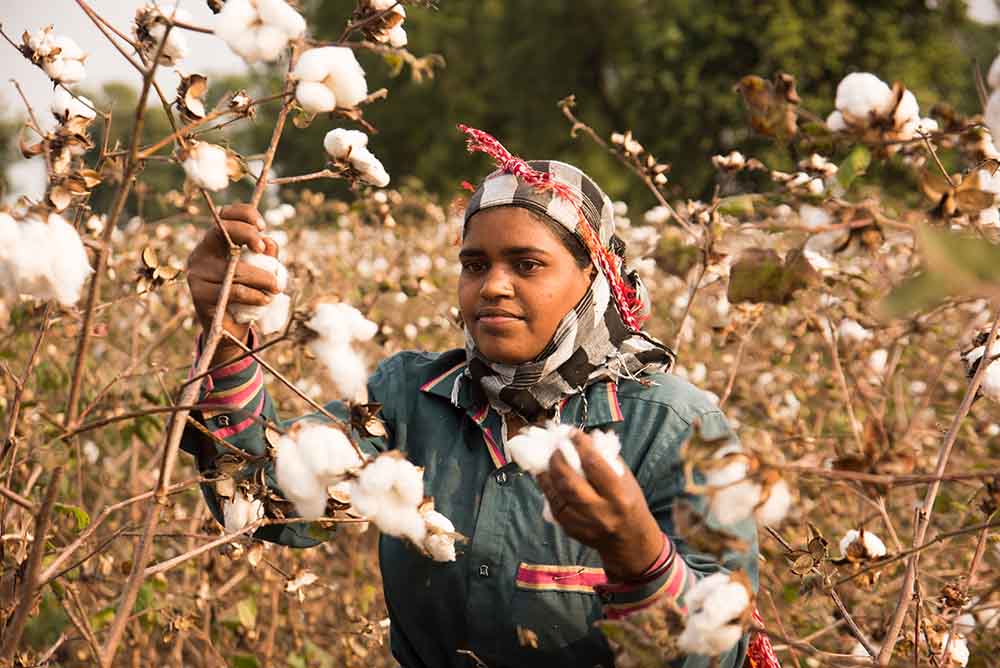Every Indian child who grew up in the 1990s was taught in school all about the Green Revolution that the nation went through. Implemented during the period of 1967-68 and again in 1977-78, the agricultural movement changed India’s status from a food-deficient nation to one of the world’s foremost agricultural nations. The revolution involved the introduction of mechanised farm tools, irrigation facilities, high-yielding seeds, pesticides and fertilisers. While this led to a huge increase in food grain production in the states of Punjab, Haryana and Uttar Pradesh, environmentalists like Dr Vandana Shiva say that the fallout of the Green Revolution has been negative in the long run.
Environmentalists, ecologists and experts believe that the excessive use of chemical fertilisers and hybrid seeds has not only led to an immense degradation of soil quality, but also demolished our great wealth of indigenous seeds and crops. The Green Revolution is also held responsible by many experts for the financial and sociological problems India has witnessed in the last few decades, including droughts, rural indebtedness and an increase in farmer suicides. Because of these quantifiable arguments, and since India’s adoption of the United Nations’ Sustainable Development Goals (SDGs), the focus has shifted to the only method of remedying the harm done: sustainable farming, also known as organic farming.

Sustainable Agriculture: Where India Stands Now
Sustainable agriculture, also known as sustainable farming and nature-positive farming, refers to agricultural methods that can meet today’s food and textile needs while also preserving resources and abilities for future generations’ needs. Those who follow sustainable farming methods integrate principles that promote environmental health, profitability, and socio-economic equity for farming communities. The system usually involves every person in the food system, from farmers and distributors to consumers and waste managers—but it always has the grower or the farmer at the very important foundation. Clearly then, a sustainable agricultural system, once implemented fully, is for the benefit of India’s nutritional security and biodiversity conservation.
And yet, as data from the Council on Energy, Environment and Water suggests, sustainable agriculture is far from the norm in our country. Only five per cent of the nation’s sustainable agriculture practitioners have been able to scale-up beyond five per cent of the net sown area through natural farming methods like crop rotation, agroforestry, rainwater harvesting, mulching and precision. Less than five million farmers (only four per cent of the farming community) have adopted sustainable farming practices.

Sustainable Farming Courses
Given this data, providing more in-depth education around sustainable agricultural practices is the greatest need of the hour. The Indian government has dedicated an entire organisation, called the Centre for Sustainable Agriculture (CSA) to provide professional resources and technical support to farmers engaged in sustainable farming. Similarly, environmentalists like Dr Shiva also teach short courses on biodiversity conservation, seed management and natural farming at her Navdanya Earth University in Dehradun. But if you are looking for courses other than these, here’s a list you can sign up for.
Organic Farming for Sustainable Agricultural Production, National Programme on Technology Enhanced Learning (NPTEL)
This eight-week-long course teaches students all about organic farming practices, product quality analysis, environmental impact assessment, health benefits of organic products and many other related topics. The course doesn’t have any entry requirements, so it is accessible to all and does provide people with a certificate on completion. After finishing this course, students can look at creating resource-efficient farming systems for small-scale farmers to assist the community further.
Click here for more
Post-Graduate Diploma in Organic Farming and Food Production System, Institute of Good Manufacturing Practices India (IGMPI)
This distance or e-learning diploma programme is a professional course open to those with a Bachelor’s degree, and lasts one to two years based on the students’ choice. The institute provides regular module-based course materials, self-assessment assignments and practical projects on various aspects of the organic farming and foods industry. A certification is provided on completing the course, after which one can work in sectors like organic food certification auditing, quality assurance, product development and organic agriculture consultancy.
Click here for more
Certificate Course on Organic Farming, National Centre of Organic Farming
Created as a part of the National Mission on Sustainable Agriculture (NMSA) under the Ministry of Agriculture and Farmer’s Welfare, the National Centre of Organic Farming operates through its regional centres in Bengaluru, Bhubaneshwar, Jabalpur, Imphal, Nagpur and Panchkula. This particular course is a 30-days-long residential one that also offers field training to participants. However, a part of the course is also taught online now to enable students in other regions. A certification is provided on completion of the course.
Click here for more
Certificate in Organic Farming, IGNOU
This six-month-long open distance learning course was created with the help of the Agriculture and Processed Food Products Export Development Authority (APEDA). You need to have passed at least the 12th standard to qualify for this course. The course not only teaches organic farming and marketing methods, but also promotes self-reliance and entrepreneurship.
Click here for more
Certificate in Organic Farming, Sri Sri Institute of Agricultural Sciences and Trust
Created by the founders of Art of Living, this course can last from six months to up to two years based on what you want to learn. You have to have passed at least the 12th standard to be eligible to apply. The course is taught at the trust’s 100-acre campus in Bengaluru, where students learn organic farming practices for small- to medium-scale farmers. It covers production techniques as well as marketing, and a certification is provided on completing the course.
Click here for more
Organic Farming Practices and Certification, Swayam
Initiated by the government of India, this eight-week-long online course teaches farmers, students, scientists and entrepreneurs all about soil health, fertility and how to manage both through organic farming methods. On completing the course, all participants receive a certification.
Click here for more